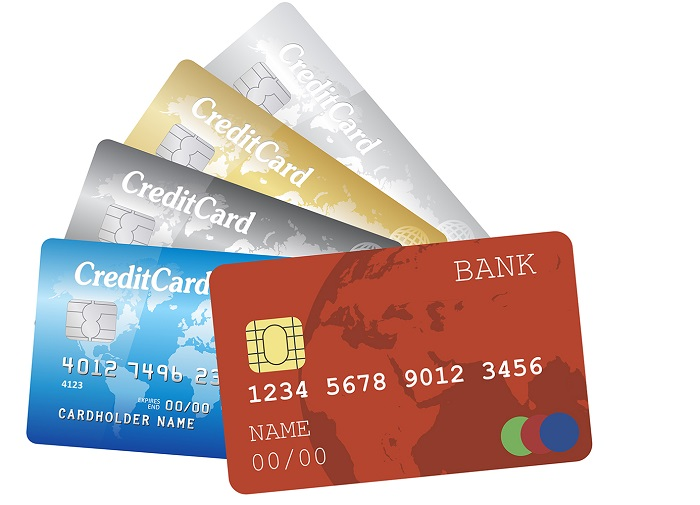If you're looking for a great way to pay for your next purchase at Best Buy, you may be wondering which bank issues the Best Buy Credit Card. Knowing who’s behind the offer can help you make a more informed decision about whether or not this credit card is right for you and your financial needs.
To start let's begin with a quick overview of what exactly the Best Buy credit card entails, including rewards programs and other benefits that come with it. We'll then explore which banks are issuing these cards so you have all the information necessary to decide if it’s right for you.
Overview of the Best Buy Credit Card and Why it is Popular
The Best Buy credit card is a popular option for loyal shoppers who want to maximize their rewards and save money. With the card, customers can earn up to 5% back in rewards on all purchases made at Best Buy stores. On top of that, they’re also eligible for exclusive offers, such as additional savings when purchasing select items or an extended warranty on certain products. Customers can also participate in the My Best Buy program, which allows them to accumulate points that can be redeemed for discounts and exclusive access to special offers.
Aside from earning rewards, the Best Buy credit card has other advantages. For starters, it comes with 0% APR on all purchases for 15 months after opening the account (subject to credit approval). This means cardholders can make large purchases without worrying about accumulating interest charges. There’s also the fact that customers have access to special financing options, such as no-interest payments for up to 24 months on select items.
Finally, Best Buy offers one of the industry's most comprehensive customer service teams, which can assist customers with anything they need regarding their account or purchase. Overall, it’s easy to see why the Best Buy credit card is a popular option among shoppers looking for rewards and convenience.
Comparing the features and benefits of different banks that issue the card
Regarding the Best Buy credit card issuing banks, there are two main contenders. First is Citigroup, which issues both the store-branded and traditional Mastercard options of the Best Buy card. Through this issuer, customers can enjoy a flexible rewards program that allows them to earn 5% back in rewards on all purchases made at Best Buy stores and access special financing offers such as no-interest payments for up to 24 months on select items.
The other major issuing bank is Capital One. The store-branded version of the Best Buy credit card offered through Capital One has similar features as those from Citigroup but also includes additional benefits like 1% back in bonus rewards after making any purchase outside of Best Buy and discounts on select items. However, the main feature of this card is that it comes with a much longer 0% APR period of 27 months compared to 15 months offered by Citigroup.
In addition to these two major issuing banks, several other financial institutions offer versions of the Best Buy credit card, such as US Bank and HSBC. These cards typically come with different benefits and reward structures than those offered through Citi and Capital One, so customers should compare each option to find which one best fits their needs.
Pros and cons of each bank when it comes to interest rates, rewards, and payment options
When comparing different banks that issue the Best Buy credit card, it’s important to look at the pros and cons of each one. For instance, while Citigroup offers a flexible rewards program giving customers up to 5% back in rewards on all purchases made at Best Buy stores and access to special financing offers such as no-interest payments for up to 24 months on select items, they also have higher interest rates. This could be problematic for those who plan to carry a balance from month to month.
Capital One also has its advantages when compared to other issuers. As mentioned, their version of the Best Buy credit card comes with additional benefits like 1% back in bonus rewards after purchasing outside of Best Buy and discounts on select items. Additionally, their card offers a much longer 0% APR period of 27 months compared to the 15 months offered by Citigroup. However, they do not offer rewards for purchases made at Best Buy stores, and their reward structure is not as flexible or generous as Citigroup’s.
Other issuers, such as US Bank and HSBC, have versions of the Best Buy credit card with different benefits and features. US Bank offers customers 1% cash back on all purchases plus exclusive deals and discounts, while HSBC has no annual fee but only allows customers to earn 1 point per dollar spent (instead of the more standard 2 points per dollar). It’s important to compare each option carefully when deciding which bank is right for you.
Tips on how to compare credit cards from different banks effectively
When comparing credit cards from different banks, remember a few key tips. The first is to consider the annual fees associated with each card, as some may have higher or lower fees than others, depending on the issuer. Additionally, it's important to look at the rewards structure of each card, taking into account any bonus points or cash-back offers that can be earned. Furthermore, customers should always carefully read the fine print and understand the terms and conditions before signing up for any particular card.
The APR associated with each credit card should also be considered when comparing different issuers. It’s important to ensure that you fully understand how much interest will be charged if you carry a balance from month to month. Finally, customers should compare the customer service and feature each issuer offers before deciding. Some issuers may offer more perks or better customer service than others, so it’s important to consider this when comparing cards.
What to consider when choosing a bank for your Best Buy Credit Card
Several important factors must be considered when choosing a bank for your Best Buy Credit Card. Firstly, look at the type of rewards and benefits each issuer offers and decide which one best fits your particular needs. Additionally, customers should compare the annual fees associated with each card to ensure they are getting the best deal. It's also important to check the APR associated with each card, as this will determine how much interest is charged if you carry a balance from month to month.
FAQs
Q: What rewards can I get with the Best Buy Credit Card?
A: The Best Buy Credit Card has a variety of rewards that you can take advantage of which include points for every dollar spent, exclusive sales and deals, extra savings on items from specific departments such as electronics and appliances, and even special financing options. You also get access to a My Best Buy Rewards program which allows customers to earn additional points on certain purchases and discounts on select items. With all these rewards, you can save money while making your next purchase - no matter your budget.
Q: Are there any fees associated with the Best Buy Credit Card?
A: Some fees are associated with the Best Buy Credit Card, depending on your account type. If you choose to open a standard account, an annual fee of $59 will be charged yearly. However, those fees are waived if you open a Premium or Elite account. Depending on the terms outlined in your agreement, a late payment fee and cash advance fee may also be associated with your Best Buy Credit Card.
Q: What other benefits come with the Best Buy Credit Card?
A: Aside from earning rewards points, cardholders can also take advantage of exclusive offers and discounts available only to cardholders. Plus, you'll get access to flexible payment options, which allow you to pay off your balance over time if needed. On top of this, Citi also offers fraud protection services and a variety of payment protection plans so you can feel secure when using your card. With all these great features, it’s easy to see why the Best Buy Credit Card is a popular choice for customers.
Conclusion
Ultimately, the Best Buy Credit Card is an excellent way to save on purchases and earn rewards. The key to finding the right bank to issue your card is to compare the fees, APR, rewards structure, customer service, and other features associated with each issuer. By doing this research upfront, customers can ensure they get the most out of their Best Buy Credit Card experience. With all these benefits in mind, it’s easy to see why so many people choose the Best Buy Credit Card as their preferred payment method when shopping at Best Buy. Knowing which banks offer these cards can help you make a more informed decision about whether or not this credit card is right for you and your financial needs.



